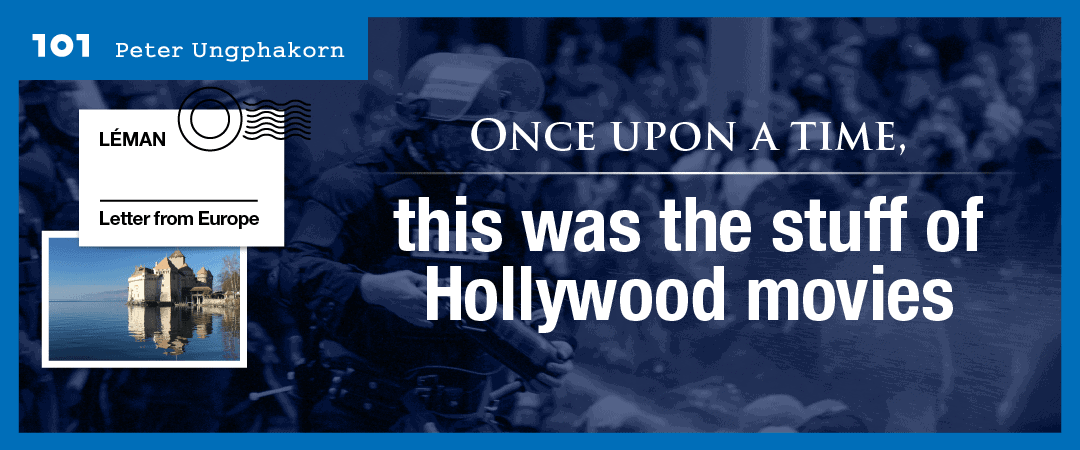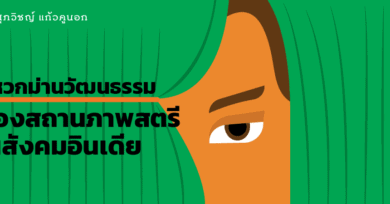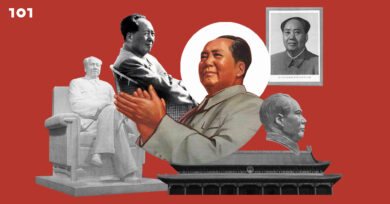Peter Ungphakorn
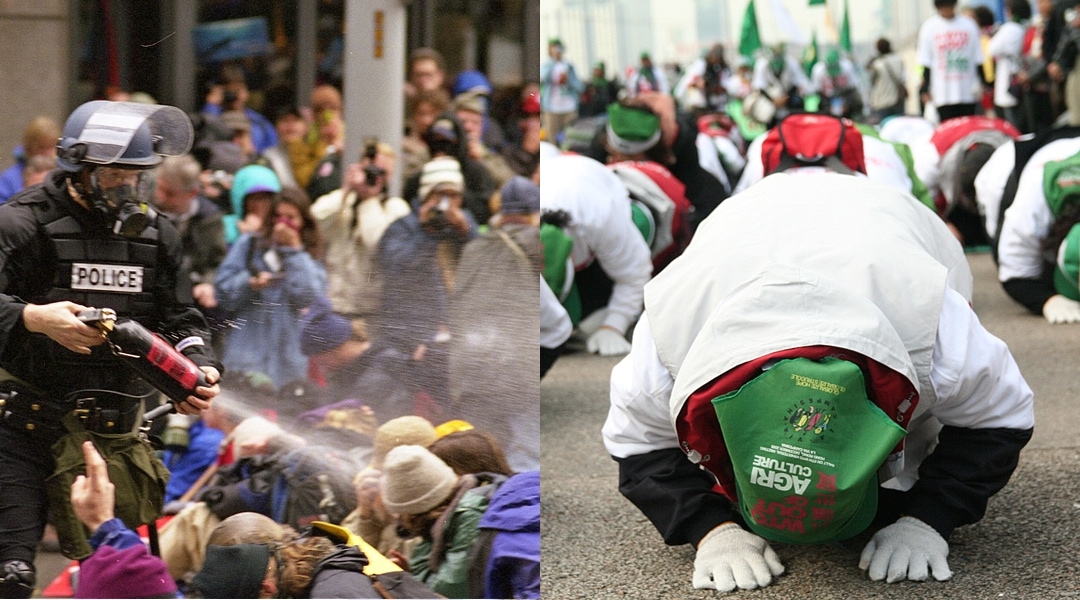
Did you know there was a major international trade meeting 10 days ago? Can you name the city where it took place?
Once upon a time the biennial conference of World Trade Organization (WTO) trade ministers would have been news everywhere. It used to attract protestors, from the huge demonstrations in Seattle in 1999, to only slightly less confrontational gatherings of South Korean farmers and others in Hong Kong in 2005.
The battle in Seattle in 1999 was so big Hollywood even made a movie about it.
https://youtube.com/watch?v=YmQzw-O8eRY
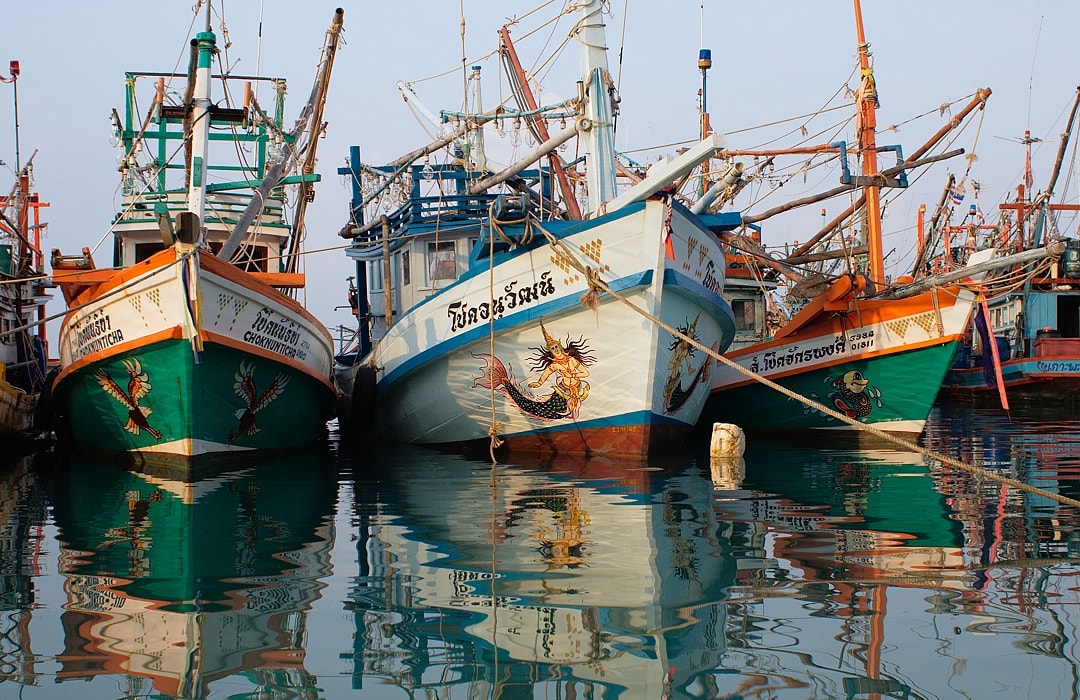
No deals, no news
Not anymore. The December 10–13, 2017 11th WTO Ministerial Conference (MC11) passed largely unnoticed in Europe. News of the meeting was mainly confined to specialist business media. There was nothing on British mainstream TV and radio or in general newspapers, and probably little if anything in other countries. I’m told there was no coverage in Thailand either.
And yet this was a meeting of the topmost decision-making body of the organization of 164 governments, whose agreements underpin $20 trillion-worth of annual trade in goods and services all over the world.
Topics on the agenda affect countries like Thailand, included agriculture and fisheries subsidies, electronic commerce and digital trade, and help for smaller companies.
Moreover, by most usual measurements it was a failure. It produced no new rule-making agreement even though the WTO badly needs to keep up with a rapidly changing world. Once upon a time, that in itself would have been news.
Worse, the Trump administration’s new sceptical approach to the WTO prevented ministers even from issuing a routine declaration at the end of the meeting because the US no longer believed in the importance of multilateralism and development in the WTO.
Delegations did work hard in Geneva — where the WTO is located on the banks of Lake Léman — right up to the last minute before the conference.
There had been hopes that agreement might be possible on topics that seemed to be less controversial. These included curbing subsidies that cause overfishing, and improving the information governments have to provide if they restrict food exports, which can make it more difficult for other countries to import food — Singapore was active on this.
WTO decisions are taken by consensus — which means no one says “no”. There was no consensus on these or any other issues. So they all fell into the WTO’s default approach when no agreement is reached. Talks will continue in Geneva under existing or new work programmes.
The biggest disappointment is the failure to agree to scrap subsidies going to illegal fishing. WTO negotiators are now under pressure to produce a deal to curb all subsidies that encourage overfishing by the next ministerial conference in 2019.
This is needed if the UN’s sustainable development goals for fishing are to be met:
“By 2020, effectively regulate harvesting and end overfishing, illegal, unreported and unregulated fishing and destructive fishing practices and implement science-based management plans, in order to restore fish stocks in the shortest time feasible, at least to levels that can produce maximum sustainable yield as determined by their biological characteristics.”
Three new topics for discussion in Geneva actually show that the WTO may be becoming more fragmented. Some countries are more enthusiastic than others about electronic commerce, something called “investment facilitation”, and how to help tiny-to-medium sized enterprises trade better. So only some WTO members will participate in each task.
Finally, one more surprise. During the conference, 118 WTO members and observer governments signed on to a Declaration on Women and Trade, outlining actions to empower women. The surprise is that Thailand was not among them, even though women dominate the country’s top positions on trade policy.

Alive or dead? It depends on what you see
For the WTO, all of this poses an interesting question. Is it better to make a high profile impact, in which case it’s the protests and violence that often hit the headlines? Or is it better to be ignored?
Setting aside the question of whether the protestors really know what WTO negotiations are about, some go so far as to argue that at least for part of the time, it’s actually better to have a low profile. This is because some of the WTO’s best work happens quietly behind the scenes.
To understand this, we have to look at what the WTO does overall, not just the headline-hitting activities.
I’ve compared people’s perception of the WTO to the parable of the blind men and the elephant.
Each feels a different part and, according to this version, they observe separately a wall (the body), spear (tusk), snake (trunk), tree (leg), fan (ear), and rope (tail) (another version is here):
Though each was partly in the right,
And all were in the wrong!
Even those who have spent their lives working on the WTO stress different aspects. For some lawyers it’s all about WTO law and dispute settlement, the “jewel in the crown”. For some practitioners, what matters are the achievements of WTO committees whose work is partly designed to avoid legal disputes. And then there are those such as journalist and politicians, who only look at negotiations.
The WTO elephant is its multilateral trading system. It stands or moves on four legs. All four are important. Right now they are not too steady.
This is a sketch. More details are here. What it shows is that if the WTO is in trouble, this is not because of failure to strike a deal at a ministerial conference, but something else.
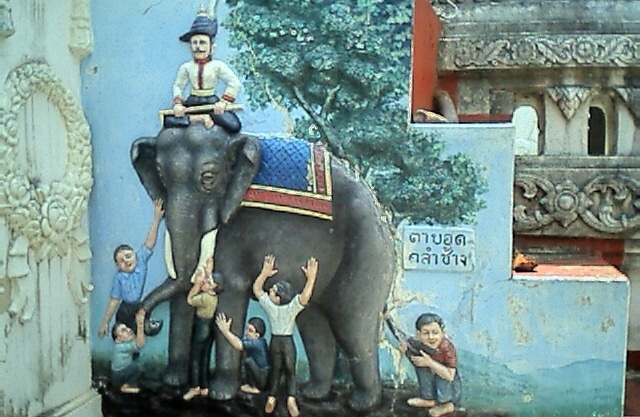
Leg 1: Trade negotiations — where WTO rules come from
Negotiations are the starting point of everything that happens in the WTO. All “WTO rules” (or WTO law) are actually negotiated agreements. Everything the WTO does is based on them.
They include key principles such as non-discrimination and transparency, and aim for a trading system that is stable and predictable.
They have been negotiated and re-negotiated since the end of the Second World War.
The WTO’s political leaders, ever since Mike Moore was its director-general, have measured their own success or failure by the fate of negotiations.
By that measure, Moore was successful in launching the Doha Round in 2001 after failing in Seattle in 1999, but all his successors have been unable to conclude the talks, until recently when the WTO switched from a “round” of multiple topics, to single-issue deals.
Judging by this leg alone, this year’s ministerial conference was a failure. But there’s more to it than that.
Leg 2: Implementing and monitoring — vital, routine WTO work
Signing negotiated agreements is not an end: it’s a beginning — the start of a lot of unglamorous, routine, behind-the-scenes work in the WTO.
Countries want to know how well others are keeping the promises they made in those agreements and how they are implementing what was agreed.
By and large this is a successful part of the WTO’s work. It keeps that $20 trillion annual trade flowing pretty smoothly.
But this leg is wobbling because members struggle to keep up-to-date with the information they have to supply once or twice a year, or when they introduce new regulations or policies. Poor or out-of-date information makes monitoring difficult.
The ministerial conference made little difference to this leg although improved information-sharing is promised for fisheries subsidies. A number of members hope to strengthen transparency more generally to make monitoring more effective. Apart from that, this leg in good health.
Leg 3: Legal dispute settlement — adjudicating WTO law
Formal WTO disputes attract much more attention. They help enforce agreements. They also deal with huge amounts of money (such as aircraft subsidies) or other concerns (such as when tuna fishing endangers dolphins).
WTO disputes are always between governments, so “Boeing” versus “Airbus” is actually the US versus the EU.
And they are always about broken promises (violations of WTO agreements, commitments or expected rights).
Normally, if a country is dissatisfied with a dispute ruling, it has to try to renegotiate the law.
This year, something different has happened. The US is unhappy with rulings against a particular method it used to calculate something called a “dumping margin”.
It’s all very technical but powerful commercial interests are involved and the upshot is that the US is blocking the appointment of WTO appeals judges to replace those whose terms expire. By December 11, they had dwindled from seven to just four.
Unless something changes, WTO disputes could eventually come to a halt. The elephant would be toothless.
This is a far more serious threat to the WTO than problems with negotiations.
Leg 4: development — the WTO’s particular role
The WTO Is not a development agency, but members want it to have a role. It does this in several ways.
Trade itself is supposed to help developing countries. The rules in the trade agreements also include a considerable amount of leeway for them.
The WTO hosts “aid-for-trade” meetings between development agencies and other donors, and developing countries, so that aid matches real needs as much as possible.
And the WTO Secretariat also trains officials from developing countries so they can operate better in the system.
Acknowledging this used to be routine. Not anymore.
The US blocked a draft declaration for the December 10–13, 2017 WTO Ministerial Conference in Buenos Aires. It objected to the commitments to the WTO’s multilateral trading system and development, both of them standard in previous declarations.
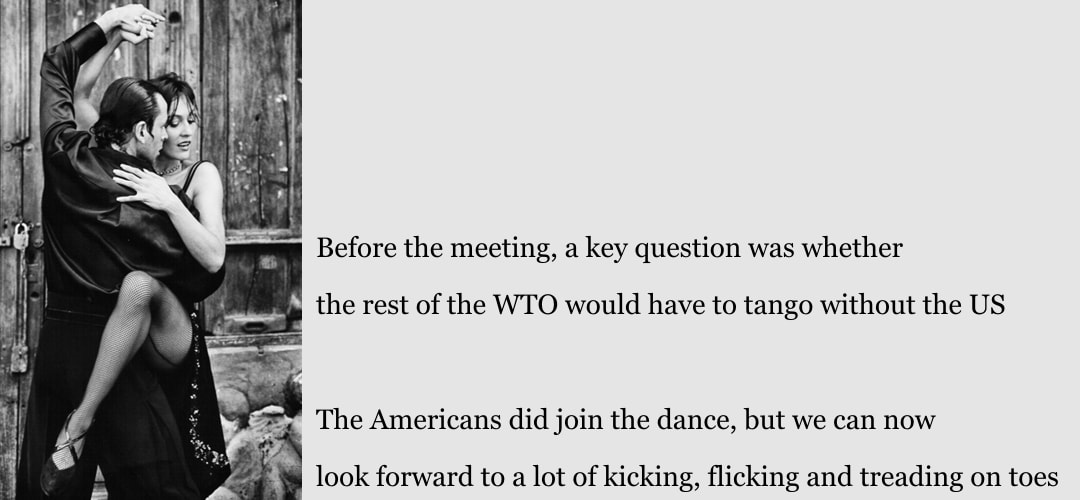
What it means
What all of this means is that the WTO is still capable of producing agreements but with stops and starts, so it will take a long time — perhaps too long for some.
Nevertheless, we should not overlook its unglamorous nitty gritty achievements — the existing agreements and routine work on monitoring how they are being implemented, which will keep trade flowing more or less smoothly for some time to come.
The most immediate problem is about the Appellate Body judges. This needs to be sorted out urgently. All eyes will be on the Trump administration in the US, but also the other major players such as the EU and China.
Finally, if you’ve followed some of the links above you’ll know the answer to the question at the top — the ministerial conference was held in Buenos Aires, the home of the tango.
Before the meeting, a key question was whether the rest of the WTO would have to tango without the US. The Americans did join the dance, but we can now look forward to a lot of kicking, flicking and treading on toes.
P.S. Finally, a year-end update
As the year draws to a close, here are some updates on issues raised in earlier “Léman” columns:
- Can a UK-EU Brexit deal really emerge from this chaos? (June 27, 2017): It’s been a struggle and the government has lost one vote in Parliament over MPs’ power to vote on the final deal, but the first phase of negotiations has ended. The UK and EU will now start talking about their future relationship.
- The WTO dispute on tobacco branding (July 21, 2017): The dispute panel report still hasn’t been circulated. Sources blame the increasing load of dealing with disputes at a time of limited resources. Problems with appointing Appellate Body judges, mentioned in this article (above) are beginning to cast doubt on whether an appeal by either side will be possible once the panel report is circulated.
- The devilish message of the corpses in the mountains (August 24, 2017): Snow has come to Switzerland and the Alps earlier this year than last, but the longer term picture is still bad.
- When sorry seems to be the hardest word (November 24, 2017): Foreign Secretary Boris Johnson visited Iran in early December and claimed talks on releasing British nationals, including Nazanin Zaghari-Ratcliffe, had been “worthwhile”. However there was no word of a possible release.
—————
Image and photo credits: Seattle protests by Steve Kaiser; Hong Kong protests by fuzheado; Sri Thanu fishing fleet by apes_abroad — all CC BY-SA 2.0. Women and Trade Declaration — © WTO. Thai elephant mural from Phra That Phanom chedi; tango — public domain/CC0
—————
Peter Ungphakorn is based on the shores of Lake Léman in Switzerland. He spent almost two decades with the WTO Secretariat, Geneva. Before that he worked for The Nation and the Bangkok Post. He now writes for IEG Policy on agricultural trade issues and blogs on trade, Brexit and other issues at https://tradebetablog.wordpress.com/
